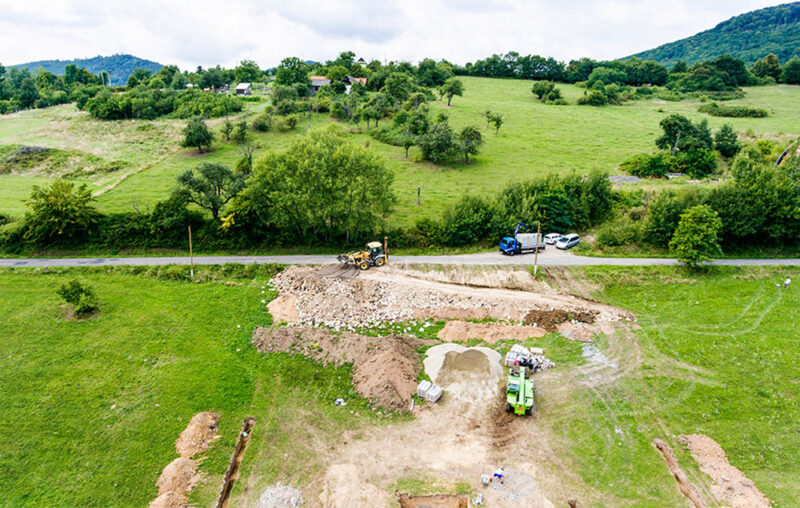Updated October 13, 2020
A land trust can be a very useful tool in estate planning and investing, but not many attorneys or CPAs may be familiar with this entity. Land trusts are only recognized by statute in just a handful of states. That means that only a handful of states – Hawaii, Illinois, Indiana, Florida, Georgia, Montana, South Dakota, or Virginia – have a law on the books that recognize this type of trust. Even if your state does not have a statute recognizing a land trust, you can still gain the same benefits by transferring your property to a living (revocable) trust. Unlike an LLC or other corporate entity, a land trust does not have to be assigned to a particular state or jurisdiction. So, how much does it cost to set up a land trust? Let’s cover the basics.
What is a Land Trust?
A land trust acts like any other grantor trust. There are many types of grantor trusts, like living trusts and personal property trusts. These grantor trusts shift the title of property out of one person’s name and into the care of a trustee. The trust agreement, at the creation of the trust, is the governing instrument between the trustee and the beneficiary.
In forming a land trust, three basic parties are involved: the grantor, the trustee, and the beneficiary.
The Grantor
The grantor is the person who forms the trust and transfers assets into the trust is known as the grantor. The grantor can fund assets into the trust, and the trust can control those assets right away. The grantor usually remains the beneficiary of the trust for his or her lifetime.
The Trustee
The trustee is the person who manages the trust. Usually, the grantor appoints a trustee, (a third-party) who has specific instructions and actual duties in managing the trust. These duties can range from collecting rental payments to paying expenses and handling tenant questions and concerns. Although not recommended, the grantor can also be the trustee.
Free Strategy Session with an Anderson Advisor
Receive a detailed risk assessment to assist in lowering problem areas that could wipe out all of your assets with one wrong move. Speak with an Anderson Professional Advisor to get your FREE Strategy Session.
Limited-Time Offer: ($750 value.)
The Beneficiary
The beneficiary is usually the grantor, the person who receives the benefits of the trust. The beneficiary has actual ownership of the property and holds equitable title. The beneficiary maintains the absolute right to fire the trustee and appoint a successor trustee.
Why Use a Land Trust?
A land trust can be used in just about any real estate transaction. There are numerous advantages to land trusts. Some include:
- Avoids the “due on sale” clause when an encumbered property is transferred – A “due on sale” clause allows the bank to “call in” or “accelerate” its loan if the title of the property is ever transferred to another person or entity (like an LLC).
- Provides privacy of ownership – Under a land trust agreement, your identity as the legal owner of the real estate is not disclosed to the public or to any third party, except in cases of a subpoena or court order. Once the land trust agreement is executed and recorded, the land titles office will no longer reveal to the public that you are the owner of the property. The trust agreement usually remains in a private area (like the grantor/beneficiary’s home) and, therefore, will not come up in a public search. Even though a land trust is not a true asset protection vehicle, it is a powerful tool to ensure that property ownership remains private and is thus unknown by potential litigators looking for assets in potential lawsuits. You can only benefit from this type of privacy if the grantor and the trustee are two different people.
- The transfer of property is much easier than with an LLC
- Avoids tax transfers.
How Much Does It Cost to Set Up a Land Trust?
The first thing to consider when forming a land trust is the state’s law. Currently, only eight states in the US have statutes on land trusts. The rest follow common law. Therefore, land trust formation is very complex and depends on the state. A land trust must be formed in accordance with the particular state’s laws or common laws. Using an experienced attorney can ensure that the land trust is set up properly to ensure its intended purpose will be carried out. Therefore, the cost of an experienced attorney should be factored in. Attorney pricing can vary depending on location and level of expertise. Beware of online programs where you can write the trust document yourself. Although you may be saving some money upfront, it may be more expensive in the long run if the trust documents are not written or executed correctly. Usually, these problems aren’t discovered until the estate or owner is subject to a lawsuit.
When adding up how much it costs to set up a land trust, another expense to consider is the type and size of the estate. Single-family homes, nonprofit organizations, community land trusts, conservation easements (and other laws that conserve land) all have different considerations. This means that executing the draft of the trust agreement, which governs that relationship between the trustee and the beneficiary, may be more complex depending on the estate type. Another consideration that can affect the cost is whether there are multiple properties. Each property should be titled into a separate trust using a trustee to keep ownership private from the public. Separate trusts mean separate trust agreements. This will also factor into the investment cost of drafting and creating a land trust and accompanying trust agreement.
The Bottom Line: Work with an Expert
If you have a property that you are considering placing in a land trust, you may wonder how the land trust will work to your benefit to help you achieve your financial goals. Our legal team and the experienced attorneys at Anderson Advisors would welcome the opportunity to consult with you regarding how you can achieve your estate planning and financial goals, including protecting your identity, avoiding the probate process, protecting your family farm, partnerships, or other assets through a land trust. Let us help you ensure that your legal and financial rights are protected. Schedule your complimentary consultation today to get the expert insight your investing goals need. On the call, you and a Senior Advisor will discuss your individual investing and goals to build a blueprint for your financial success. You can schedule online or by calling 888.871.8535.
LAND TRUST KIT
Anderson’s Land Trust Kit provides the training, the expert tips, the support documents, and the clarity you need to confidently and correctly set up your land trust. Land trusts are an invaluable tool in any savvy investor’s toolbox.












